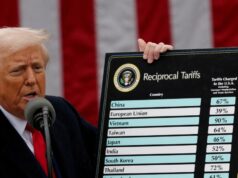The fact that the December 18 meeting between the Special Representatives On The Border Issue, Indian National Security Adviser Ajit Doval and Chinese Foreign Minister Wang Yi, was not pushed to a later date next year indicates “there is intent on both sides to start moving forward”, says Manoj Kewalramani, one of India’s foremost experts on China.
“I’m happy that the process that began in October has allowed us to have a meeting between the foreign ministers, which is forward looking, and subsequently this meeting between the special representatives, said Kewalramani, who’s a Fellow, China Studies at The Takshashila Institution and Senior Associate (Non-resident), Freeman Chair in China Studies, CSIS.
“Hopefully this sets the ball rolling on conversations about border management, but also essentially about dispute resolution. So to that extent, I think it is extremely important that this meeting happened, “ he said.
In this edition of The Gist, Kewalramani also reflected on the brief businesslike readout issued by India’s Ministry of External Affairs on the meeting, compared to the long-winded Chinese Foreign Ministry readout.
“I think that’s par for the course,” he said. “If you look at Chinese readouts from meetings, say, with the US, or with other leaders, there are two things about the Chinese Ministry of Foreign Affairs.
“Firstly, it tends to be quite quick in terms of putting out the Chinese narrative. And secondly, it is quite detailed in putting out the Chinese narrative…. Which tells you that the purpose of these documents, are as much to present the Chinese perspective of the meeting in the conversation, but also signal to a domestic and global audience about China’s view and make that the sort of standard view of how the conversation is set,” he explained.
Also, “The first Chinese readout talked about a six point consensus. The Indian readout that followed echoes some of the substantive points. But it is much more crisp, but it does not tell you that the relationship is necessarily moving in the direction of a consensus in any which way,” he noted.
The next step involves new confidence building measures or a framework for border management, and “we’re likely to see that evolve in the talks going forward at the military and diplomatic level,” he said.
“You will need to clearly have some sort of new protocols in place. That does not mean that the earlier protocols need to be rubbished, but they need to be augmented because facts on the ground have changed over the last 20, 30 years.”
Also, “If you read the external Affairs Minister’s statement in parliament, and the subsequent meeting of the WMC, it seems to suggest that the disengagement is complete. There are buffer zones that exist. You know, at a couple of friction points, which were agreed before September 2022. I would like those buffer zones to be on the negotiating table. I don’t think India should accept those,” he said.
To get a deeper perspective of the issues that still need to be resolved, and to understand why India needs to be able to do business with China without compromising on national security, watch the full interview.
In a career spanning three decades and counting, Ramananda (Ram to his friends) has been the foreign editor of The Telegraph, Outlook Magazine and the New Indian Express. He helped set up rediff.com’s editorial operations in San Jose and New York, helmed sify.com, and was the founder editor of India.com.
His work has featured in national and international publications like the Al Jazeera Centre for Studies, Global Times and Ashahi Shimbun. But his one constant over all these years, he says, has been the attempt to understand rising India’s place in the world.
He can rustle up a mean salad, his oil-less pepper chicken is to die for, and all it takes is some beer and rhythm and blues to rock his soul.
Talk to him about foreign and strategic affairs, media, South Asia, China, and of course India.




